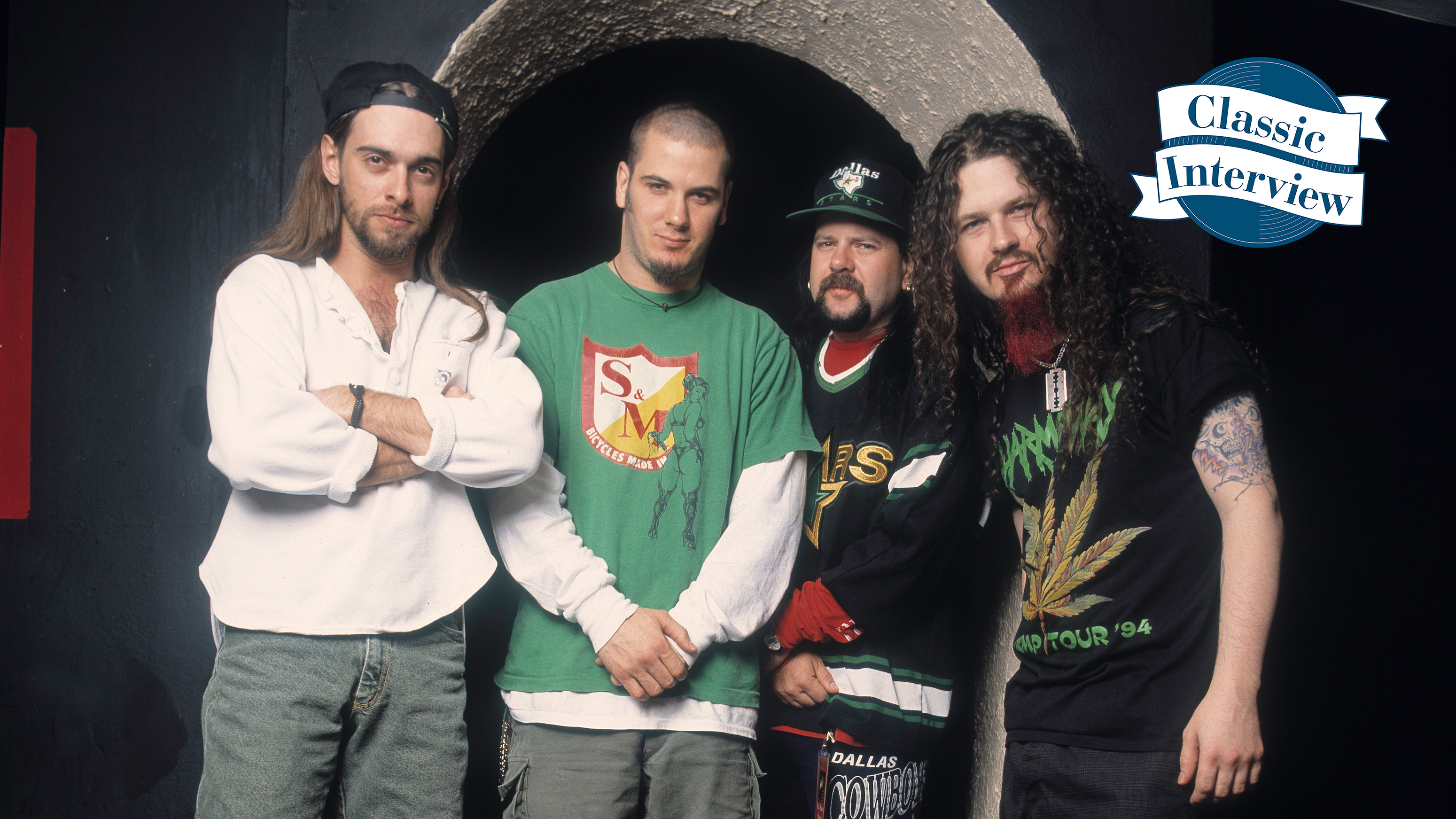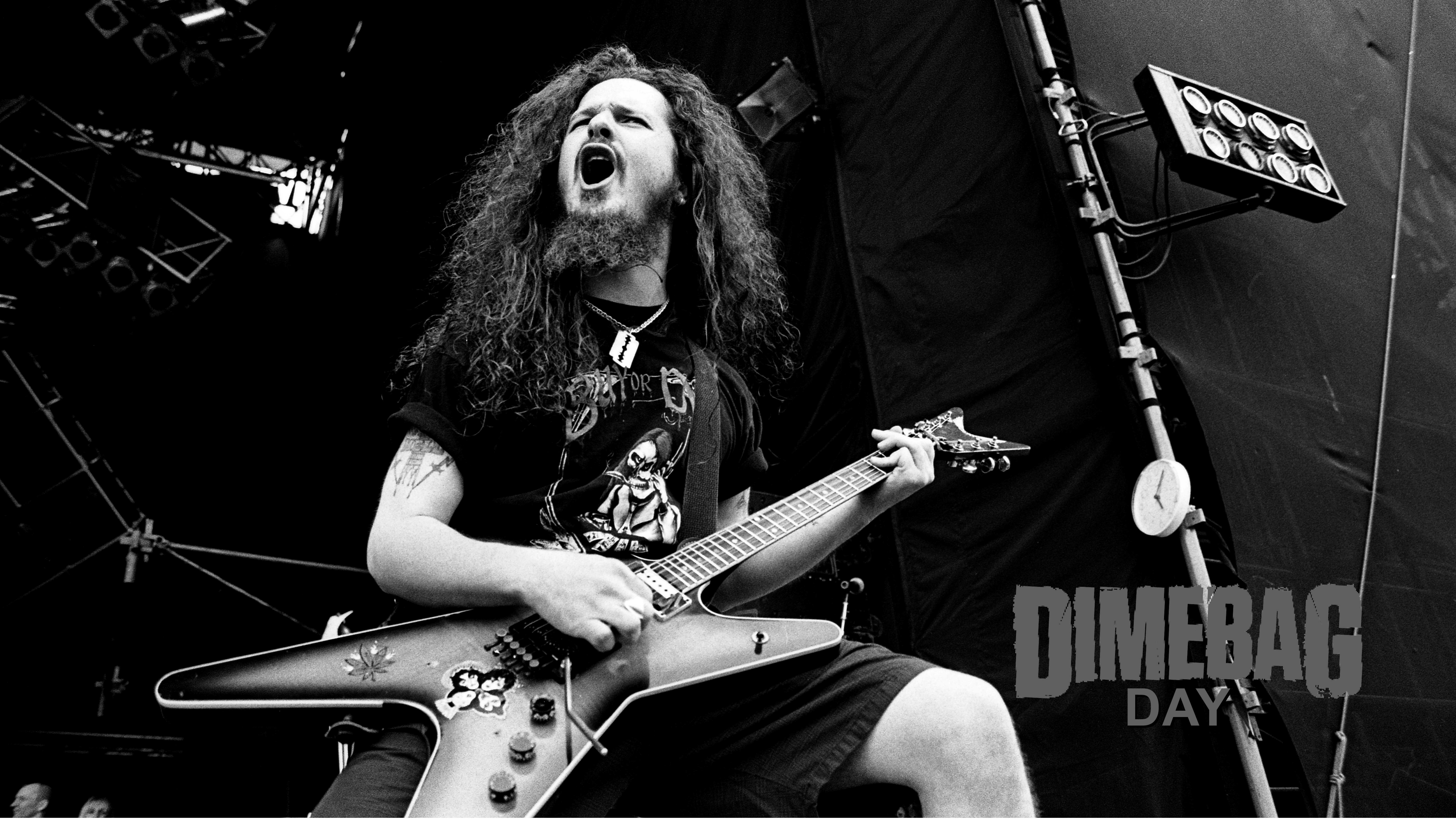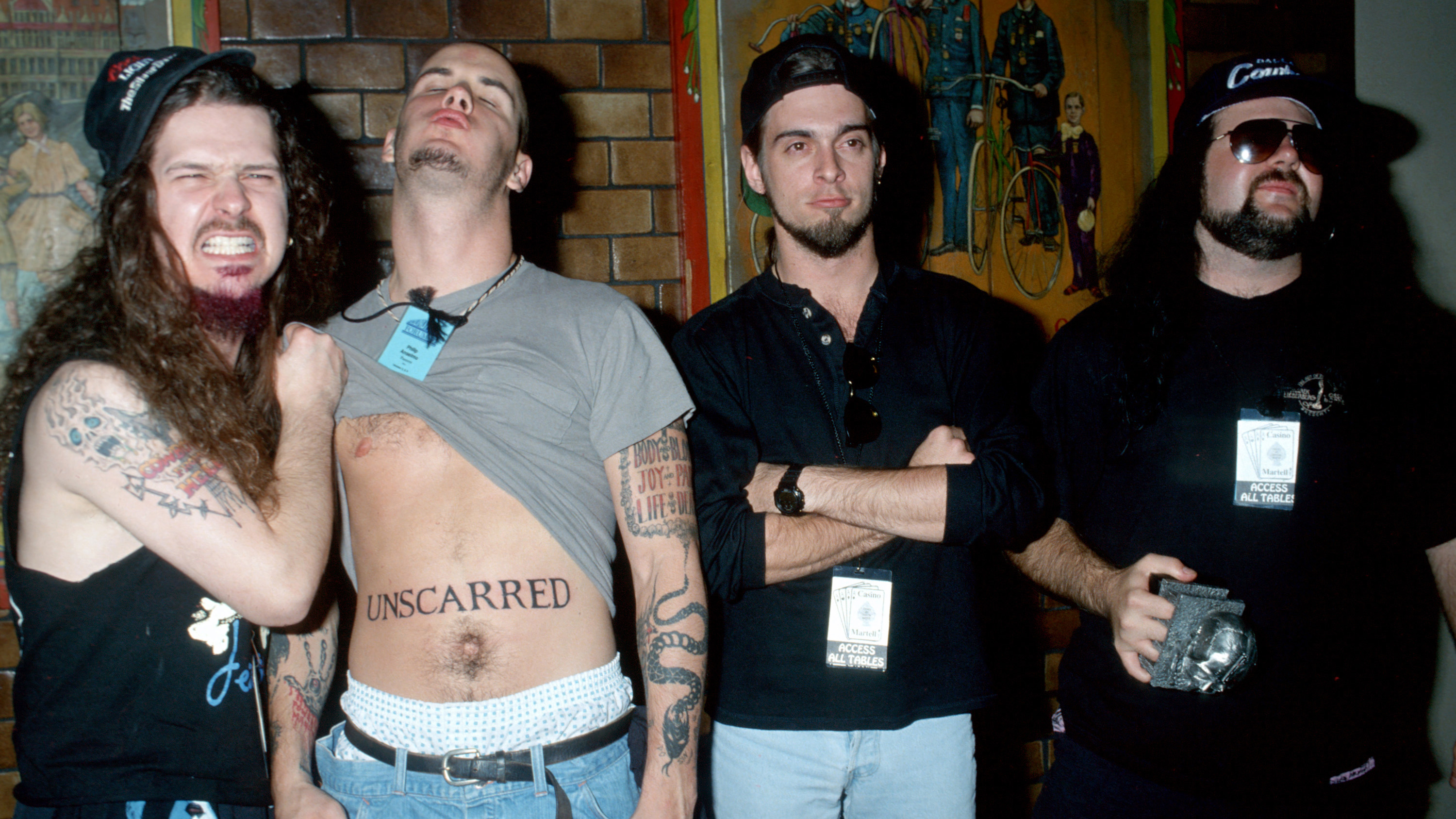
Classic interview: From powering the metal behemoth Pantera to his widely acclaimed work with Down and Kill Devil Hill, Rex Brown has established himself as one of the heaviest and most influential badasses of the bass guitar.
Asked to describe how his playing has changed over the years, the Texas metallurgist says, "Whether you're playing with three or four different cats, you have to adapt to each situation. Down didn't sound like Pantera, and Kill Devil Hill certainly doesn't sound like either of those bands. You have to size up everybody's strengths and weakness. Sometimes that calls for you to do a lot or a little, but whatever you do, you serve the song and try to keep it interesting."

Reflecting on how he fashioned his basslines in and around the massive guitar riffs of legendary guitar virtuoso Dimebag Darrell, Brown says, "Dime's sound was so big, I had to look for ways to fit something inside that wall. I had to have a real mid-punch and compose parts that could stand out. I'd play the riffs and then figure out where to take it from there, listening for little pockets of space when I need to add a nuance or a walking line. The main thing was to anchor the song, and when the music needed a little more juice from the bass, I'd go for it."
We selected five of Brown's most notable Pantera basslines and asked the metal master for his thoughts on how the tracks came about.
I'm Broken
"We had a really cool approach in Pantera in that the bass went down last. Darrell would put his guitar tracks down after the drums, and then I'd come in and do the bass. I'd play along to the kick and snare and three of Dime's guitars - two on each side and one up the middle.
"We wrote this tune in the same session as 5 Minutes Alone. This is the riff of all riffs. There's so much tight unison playing - it was always fun to play this one. Dime has some great phrasing. He came up with this technique where he would bend a note right before he attacked it. I tried to back that up and leave room so it could all be heard."
Walk
"It's one of those cool anthems, man. We couldn't get radio to play it at all back in the day, but now you hear the song at stadiums. Figure that one out. [Laughs]
Get the MusicRadar Newsletter
Want all the hottest music and gear news, reviews, deals, features and more, direct to your inbox? Sign up here.
It's funny, if it were up to Dime he would've had me play everything in unison with him for the entire record
"This was a song that developed during soundchecks. Vinnie [Paul, drummer] and I knew where the hits were, and so he's hitting with me on the accents. For this song, I needed to keep it pumpin' on the bottom end, so I'm playing right along with Dime pretty much throughout. I came up with another pattern for the solo, of course.
"It's funny, if it were up to Dime he would've had me play everything in unison with him for the entire record. As a bass player, you have to get away from that a little bit. You've gotta add your own mustard to it."
5 Minutes Alone

"He was masterful at seizing the moment" – Phil Anselmo reflects on his years with Dime
"I remember the record company wanted us to do something like Metallica's 'Black Album,' but we just said no. And we came in at number one on the Billboard charts with the heaviest record ever, Far Beyond Driven. To this day, there's never been a record that heavy to get to the top of the chart.
"Some of the riffs on 5 Minutes Alone are completely off-the-shelf. There's a whole lot of note bending going on, but it's not as extreme as you might think. I remember when we did the video, it was shot at something like 60 frames per second. You could really see the flapping of the strings. So while I am bending the notes, it's a bit of a visual exaggeration as to how far I'm going with it.
"For the most part, I locked in with Dime's riff. During the solo, I tried to keep the main riff going, stay with the theme, but I floated around it. Sometimes I'd put a lick overtop what Dime was doing, but most of the time I held things nice and tight."
Suicide Note Pt. II
"A lot of fast picking stuff on this cut. This record [The Great Southern Trendkill] was really experimental in the craziest of fashions. We had hit number one and were on something of a roller coaster, and there's only one way to follow that up: to be the heaviest and most insane band in the land. We intentionally said, 'Fuck the world. We're just gonna do whatever it is we want.'
"Phil [Anselmo] brought a lot of riffs in for this album. Around this time, we'd be going into a really fast part, and he'd say, 'OK, break it down.' So we'd come down half-time or even double half-time.
"There were a lot of punches on this one. Every day the song kept evolving, so you had to stay with the changes. It's such a cool track. It's become one of the fan favorites over the years."
This Love
Live, I would play this bassline very differently from what I did on record
"Dime had this one pretty well mapped out. I think it was another soundcheck tune. Everything we did was chronicled: we had an assistant running tape, so if somebody came up with something it was documented. If my memory serves correctly, this song was written right after Cowboys From Hell came out.
"In the studio, there was a lot of layering of guitars where the leads were; Dime liked a lot of texture from rhythm guitars. Live, I would play this bassline very differently from what I did on record. It's an easy part, so I would change it up a bit, throwing in an A up top on the G string because the song is in the key of F sharp - that would create a minor chord. You have to find those little variables to make it more interesting. Plus, when you play a song live hundreds of times around the world, you don't wanna play the same fuckin' thing all the time.
"There's a key change in the solo that I do - I thought it would be a neat break during the third pass that comes around. Instead of playing the same thing four times through, it sets up a nice change that fits the song perfectly."
5 songs guitarists need to hear by… Dimebag Darrell
Joe is a freelance journalist who has, over the past few decades, interviewed hundreds of guitarists for Guitar World, Guitar Player, MusicRadar and Classic Rock. He is also a former editor of Guitar World, contributing writer for Guitar Aficionado and VP of A&R for Island Records. He’s an enthusiastic guitarist, but he’s nowhere near the likes of the people he interviews. Surprisingly, his skills are more suited to the drums. If you need a drummer for your Beatles tribute band, look him up.
“I can write anything... Just tell me what you want. You want death metal in C? Okay, here it is. A little country and western? Reggae, blues, whatever”: Yngwie Malmsteen on classical epiphanies, modern art and why he embraces the cliff edge
“You're by far the best guy that we've tried. I would love to have you in the band”: So why did Trent Reznor turn down Richie Kotzen for Nine Inch Nails?










